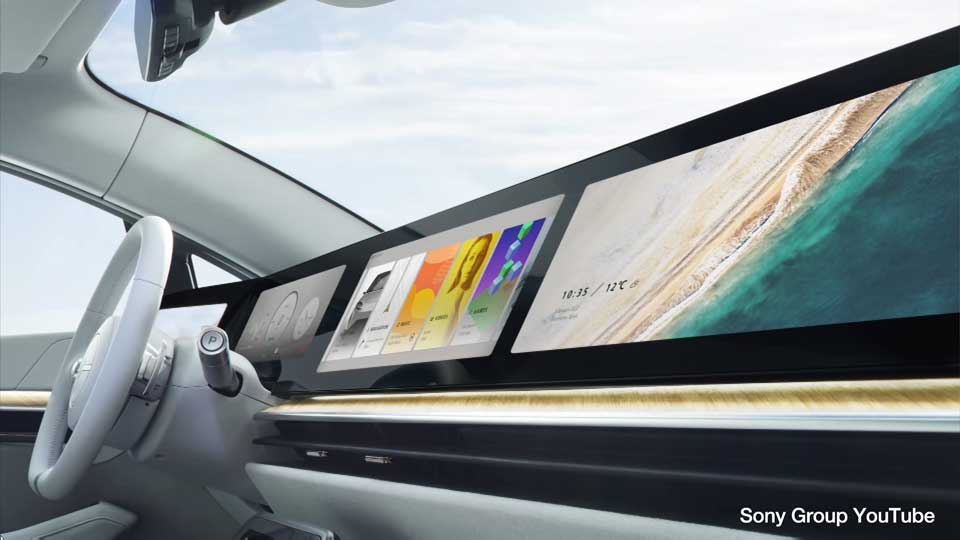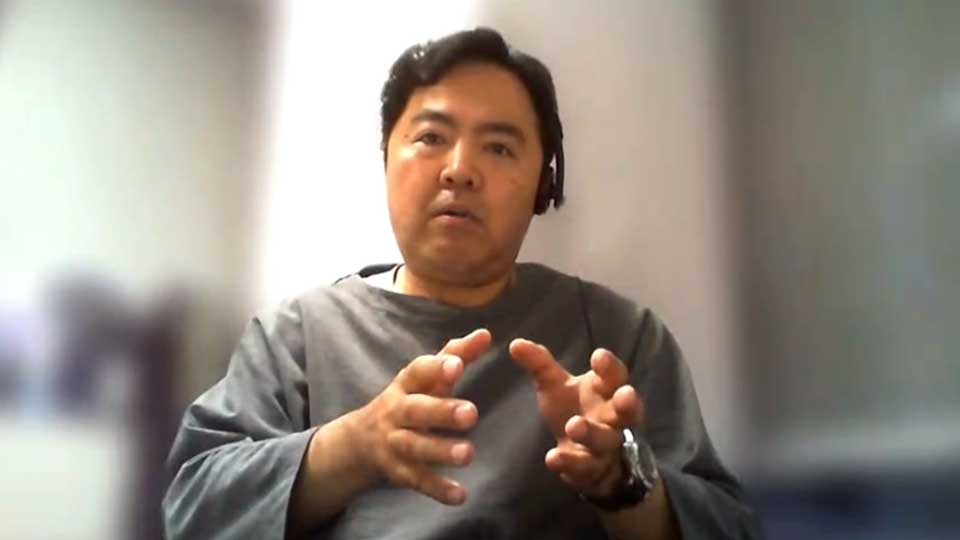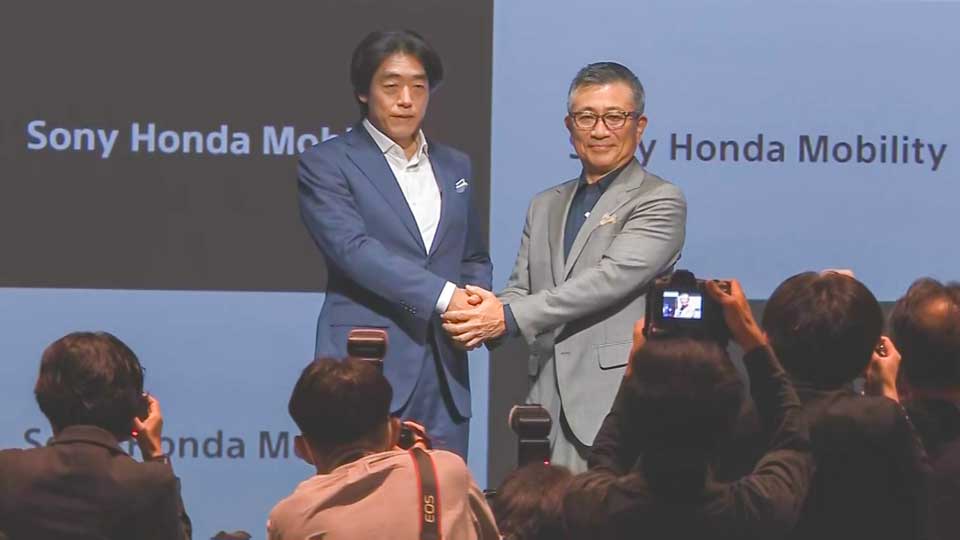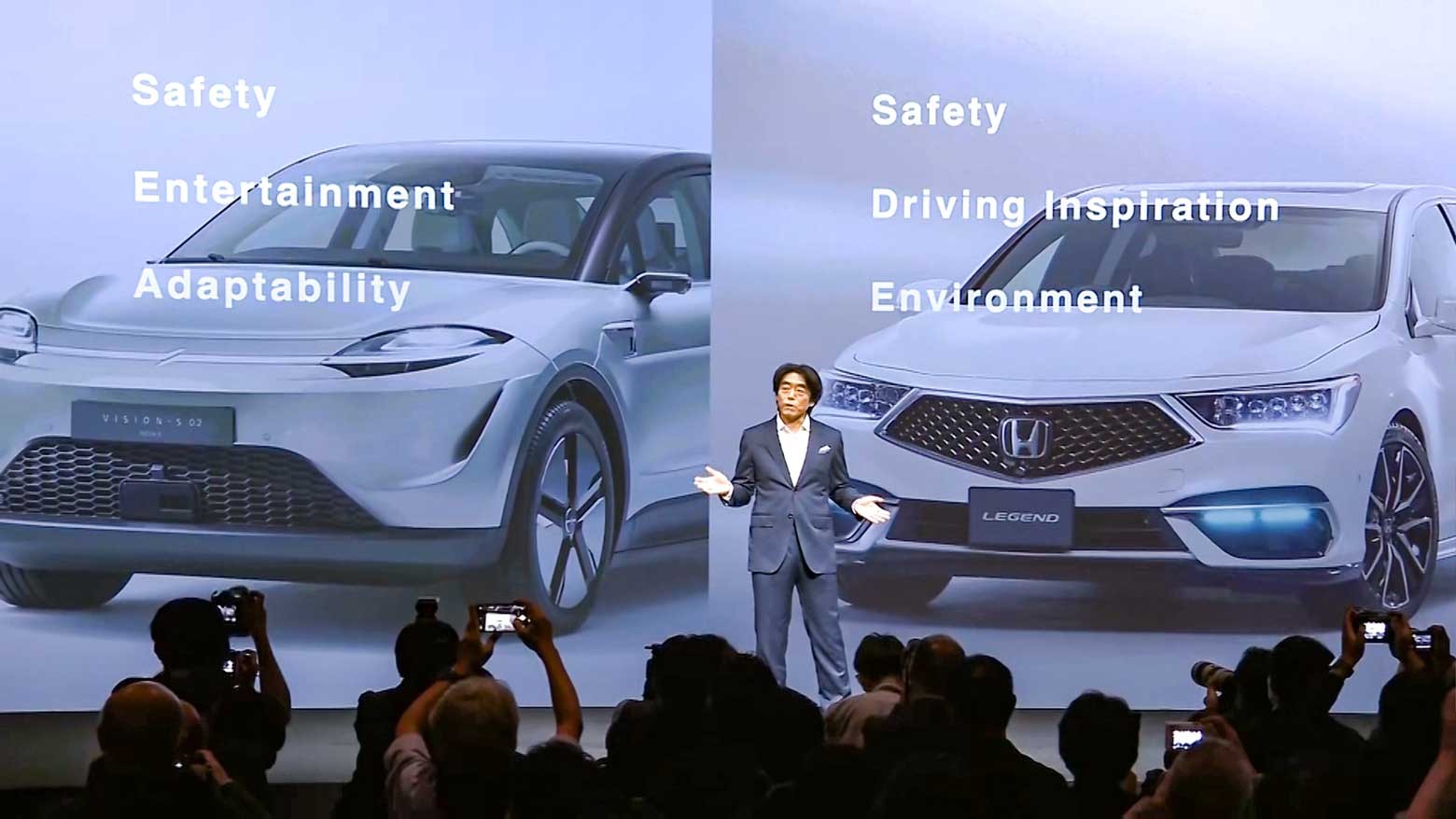Sony Honda Mobility will start accepting orders for its first electric vehicle in 2025. If all goes to plan, the new EV will be delivered to customers in the United States and Japan the following year.
At the company's first news conference, on October 13, President and COO Kawanishi Izumi told reporters: "We want to fill the new car with the latest technology so we can offer customers a new experience. We're aiming to achieve high quality mobility."
Sony's advantage
Sony's entry into the market comes at a time when the car industry is undergoing a seismic shift from gasoline-powered automobiles to electric vehicles and autonomous driving. Other outsiders also sense a great opportunity, and newcomers include Google's parent company, Alphabet, and Taiwan's Foxconn, a leader in contract manufacturing.
Analysts say next-generation vehicles offer multiple ways for Sony to expand its core business areas, including camera sensors, semiconductors and, especially, entertainment.

Nakane Yasuo, global head of technology research at Mizuho Securities, says Sony is looking ahead to the 2030s, when cars may be fully autonomous. "Apart from listening to music, drivers now can't do anything except drive," he says. "But in completely autonomous cars, drivers will be free to do anything. So, Sony wants to provide games and movies. That's what it's good at."

According to Nakane, Sony is preparing for the new era of mobile entertainment by creating a unique work culture within the company. There's fierce global competition to attract engineers, and he thinks Sony has an advantage.
"If Sony can sell cars, then it can offer jobs only Sony engineers can do," he says. "For example, game engineers may be able to participate in creating cars, and car engineers may be able to take part in electronics-related projects. The possibilities are vast. This will be a big advantage in attracting talented people to the company."

Potential challenges
Nakane also says the new firm must combine two different corporate cultures and that could pose challenges. "The investment ratio is 50-50," he says. "The ultimate goal for both companies to launch an EV is the same, but I'm sure there will be differences on how to achieve that goal. And in the absence of a senior partner, it will be hard for Sony and Honda to reach agreements on some decisions. They will have to find mutually acceptable solutions in a limited time."

